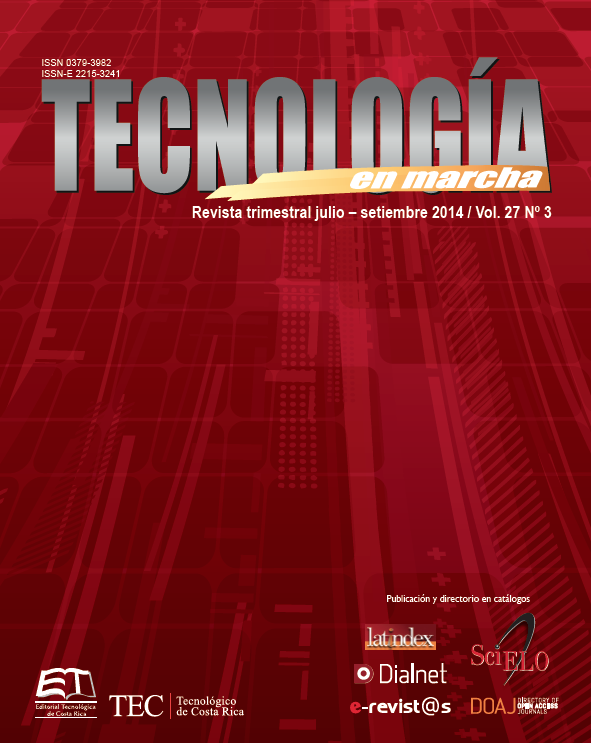Molecular-genetic characterization of Stevia rebaudiana processed materials using microsatellite technique
Main Article Content
Abstract
Stevia rebaudiana is a herbaceous and perennial plant belonging to the Asteraceae family, it is native of Paraguay and grows in tropical and subtropical climates. Due to the natural sweetness of its leaves, is known as a natural sweetener with no calories and with many applications in food industry. Therefore, it is of great commercial importance to have techniques for determinate the quality and purity of the raw material processed into powder for the production of sweeteners. Been used for the implementation of molecular markers ISSR, enabling amplify sequences that are between the microsatellites, which yields a characteristic banding pattern for each organism.
In this study we examined the amplification of ISSR S3, S4, S5, S10, S11, S12 and S15 from DNA samples of S. rebaudiana, from greenhouse-grown plants. DNA samples were obtained by three different extraction protocols from dry and fresh material from the plant. According to the results, the ISSR S3 , S4, S5 and S11 are a good choice to detect polymorphisms in this species, and therefore the molecular identification of the species. It is necessary to check whether the ISSR S10, S12 and S15 are able to amplify DNA segments in stevia , since under the conditions of this research work was not successful DNA amplification with these primers. It is considered that ISSR markers are universal and could be used to identify every stevia cultivate for commercial production of stevioside , but it is necessary to repeat the protocols described with different varieties and work with different species of the genus Stevia sp., to obtain a general characterization.
Article Details
Los autores conservan los derechos de autor y ceden a la revista el derecho de la primera publicación y pueda editarlo, reproducirlo, distribuirlo, exhibirlo y comunicarlo en el país y en el extranjero mediante medios impresos y electrónicos. Asimismo, asumen el compromiso sobre cualquier litigio o reclamación relacionada con derechos de propiedad intelectual, exonerando de responsabilidad a la Editorial Tecnológica de Costa Rica. Además, se establece que los autores pueden realizar otros acuerdos contractuales independientes y adicionales para la distribución no exclusiva de la versión del artículo publicado en esta revista (p. ej., incluirlo en un repositorio institucional o publicarlo en un libro) siempre que indiquen claramente que el trabajo se publicó por primera vez en esta revista.

